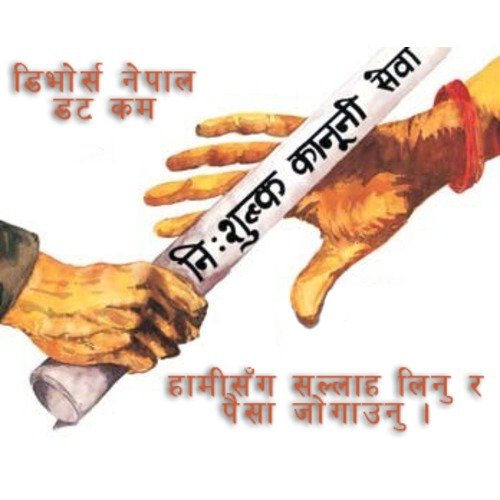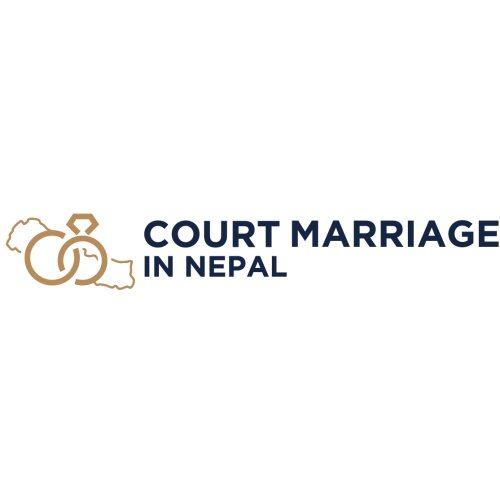Best Family Lawyers in Pokhara
Share your needs with us, get contacted by law firms.
Free. Takes 2 min.
Free Guide to Hiring a Family Lawyer
List of the best lawyers in Pokhara, Nepal
About Family Law in Pokhara, Nepal
Family law in Pokhara, Nepal, follows the broader structure of Nepalese Family Law, dictating legal procedures regarding divorce, custody, adoption, domestic violence, and property distribution in marital cases. There is also a strong focus on gender equality, with recent amendments in Nepal Family Law aimed at providing equal inheritance rights to daughters. However, cultural norms can also play a significant role in family disputes and decisions.
Why You May Need a Lawyer
You may need a lawyer for various family-related legal issues, including but not limited to divorce proceedings, child custody battles, adoption procedures, and cases involving domestic violence. Lawyers specializing in Family Law can also assist in drafting prenuptial or postnuptial agreements, handling property disputes, or attaining protective orders. Legal aid can be hugely beneficial in such complex and emotionally charged situations by ensuring that your rights and interests are properly represented.
Local Laws Overview
The local laws in Pokhara follow Nepal’s Civil Code, which governs family matters. Couple separation can only occur through a court petition, and the law allows for alimony provisions. Child custody is generally granted to mothers for children under five, though the court always prioritizes the child's best interests. There’s also a specific law, the Domestic Violence (Offence and Punishment) Act, 2066, that provides legal protections for victims of domestic violence.
Frequently Asked Questions
What are the grounds for divorce in Pokhara?
Under Nepalese law, grounds for divorce include infidelity, barrenness, incurable diseases, abandonment, and abusive or cruel behavior. Mutual consent can also be a reason for seeking a divorce.
How is child custody determined?
In general, the court gives the preference to mothers for child custody, especially if the child is under five years of age. However, the ultimate decision is always based on the child's best interest.
Does Nepalese law recognize common law marriage?
Common law marriages are not legally recognized under Nepalese law. A formal marriage registration is required for a relationship to be legally recognized as a marriage.
How is property divided in a divorce?
Property acquired during the marriage is usually divided equally upon divorce. However, it can be influenced by specific circumstances like the duration of the marriage, each party's contribution, and individual earning capacities.
Are prenuptial agreements legal in Nepal?
Yes, prenuptial agreements are legal in Nepal and can provide an important means of protecting individual assets and setting terms ahead of a marriage.
Additional Resources
The Ministry of Women, Children, and Senior Citizen, the National Women Commission, and various non-governmental organizations provide relevant resources on Family law. It's also advisable to consider sources like legal firms, local community centers, and online legal advisory platforms for more specialized guidance.
Next Steps
If you need legal assistance in Family Law in Pokhara, you should seek advice from a lawyer who specializes in this field. It's crucial to gather all the relevant documentation and provide a detailed account of your circumstances for proper assistance. In addition to this, understanding your rights and obligations can mitigate potential issues and contribute to a fair resolution of the legal matter.
Lawzana helps you find the best lawyers and law firms in Pokhara through a curated and pre-screened list of qualified legal professionals. Our platform offers rankings and detailed profiles of attorneys and law firms, allowing you to compare based on practice areas, including Family, experience, and client feedback.
Each profile includes a description of the firm's areas of practice, client reviews, team members and partners, year of establishment, spoken languages, office locations, contact information, social media presence, and any published articles or resources. Most firms on our platform speak English and are experienced in both local and international legal matters.
Get a quote from top-rated law firms in Pokhara, Nepal — quickly, securely, and without unnecessary hassle.
Disclaimer:
The information provided on this page is for general informational purposes only and does not constitute legal advice. While we strive to ensure the accuracy and relevance of the content, legal information may change over time, and interpretations of the law can vary. You should always consult with a qualified legal professional for advice specific to your situation.
We disclaim all liability for actions taken or not taken based on the content of this page. If you believe any information is incorrect or outdated, please contact us, and we will review and update it where appropriate.
Browse family law firms by service in Pokhara, Nepal
Pokhara, Nepal Attorneys in related practice areas.









